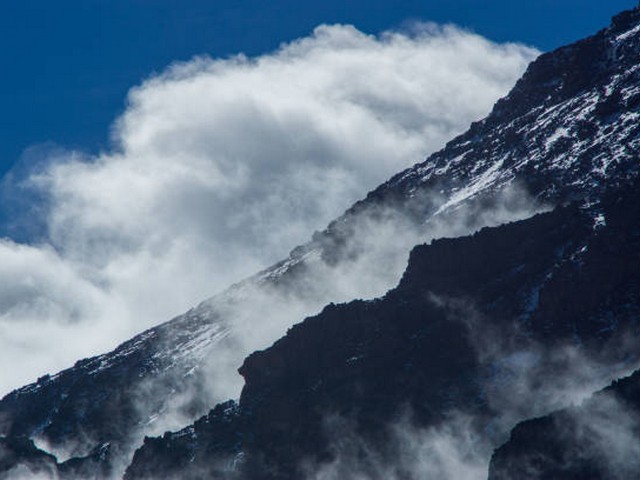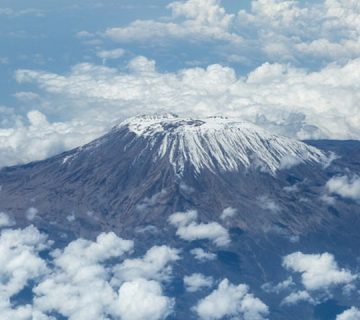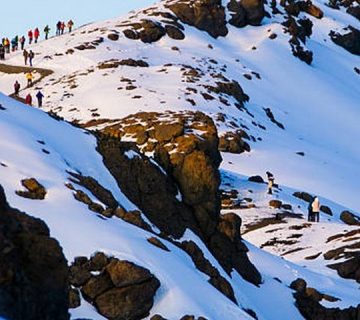Climbing Towards Sustainability: Kilimanjaro National Park’s Eco-Friendly Efforts
Nestled in the heart of Tanzania, Mount Kilimanjaro isn’t just a majestic natural wonder; it’s a beacon of sustainability efforts, drawing eco-conscious travelers from around the globe. At Kilimanjaro Centre For Trekking and Ecotourism (KCTE), we are dedicated to showcasing how Kilimanjaro National Park (KNP) is leading the way in conservation and sustainability. As you consider your next adventure, let’s explore why booking your climb with KCTE not only promises an unforgettable journey but also supports vital ecological initiatives.
Preserving Paradise: KNP’s Commitment to the Environment
Harnessing Eco-Friendly Practices in Tourism
Tourism can be a double-edged sword. While it brings economic benefits, it can also lead to environmental degradation if not managed properly. KNP has implemented several strategies to mitigate tourism’s impact, ensuring that the beauty of Kilimanjaro remains unspoiled for generations to come. Initiatives include strict waste management protocols, limited numbers of climbers per route to prevent overcrowding, and promoting eco-friendly lodging within the park.
Community Involvement and Empowerment
Sustainability is not just about preserving the environment but also about empowering local communities. KNP has fostered programs that involve local villages in conservation efforts. From training guides and porters in eco-friendly practices to supporting local artisans by promoting their crafts at visitor centers, KNP’s approach ensures that tourism benefits everyone involved.
Flora and Fauna Conservation
Home to unique species like the Kilimanjaro tree hyrax and the Chagga home gardens, Kilimanjaro’s biodiversity is its treasure. KNP’s conservation programs focus on protecting these species through habitat preservation and a strict anti-poaching regime. Research and monitoring keep the park authorities ahead in the conservation game, ensuring that the ecological balance of Kilimanjaro remains intact.
Climbing Responsibly: How You Can Contribute
Choose Eco-Conscious Tour Operators
When you book your climb with KCTE, you’re choosing a partner who prioritizes the park’s sustainability. We adhere to KNP’s guidelines and beyond, ensuring that our operations leave minimal environmental footprints. Our guides and porters are trained in Leave No Trace principles, ensuring that the paths and campsites remain pristine.
Engage in Cultural Exchange
At KCTE, we believe in the power of cultural exchange. We organize visits to local communities where you can learn about the indigenous Chagga people’s culture and traditions. This not only enriches your climbing experience but also supports local economies and promotes cultural preservation.
Support Conservation Initiatives
Part of your booking fees with KCTE goes directly to conservation initiatives within KNP. By choosing us, you’re supporting efforts such as wildlife protection programs and environmental education for local communities. You climb not just for adventure but for a cause.
Beyond Climbing: Kilimanjaro’s Broader Environmental Efforts
Renewable Energy Projects
KNP is gradually integrating renewable energy sources, such as solar power, to reduce the carbon footprint of its operations. Solar panels power several park facilities, reducing reliance on fossil fuels and setting a standard for sustainability in Tanzanian national parks.
Water Conservation Measures
Water is a precious resource on Mount Kilimanjaro. KNP has implemented water conservation measures including the use of water-efficient fixtures in park facilities and rainwater harvesting systems. These initiatives help maintain the natural water cycles of the Kilimanjaro ecosystem.
Education and Awareness Campaigns
KNP runs numerous education programs aimed at visitors and locals alike, highlighting the importance of conservation efforts. These campaigns are crucial in building a community of environmentally aware individuals who respect and contribute to the sustainability of Kilimanjaro National Park.
Join Us in Preserving Kilimanjaro’s Legacy
At Kilimanjaro Centre For Trekking and Ecotourism, we are more than just a tour operator. We are custodians of the mountain’s future. By booking your Kilimanjaro climb with us, you are participating in a larger movement towards sustainable tourism and environmental conservation.
Why Climb with KCTE?
- Eco-Friendly Operations: We practice what we preach, from eco-campsites to sustainable waste management.
- Local Empowerment: We support local economies through fair wages and training for our staff.
- Conservation Contribution: A portion of your fees funds vital conservation projects within KNP.
Embark on your Kilimanjaro journey with us and experience the sublime beauty of one of the world’s most iconic peaks, secure in the knowledge that your adventure is a stride towards preserving this wonder for tomorrow.
FAQ: Your Questions Answered
What is the best time to climb Kilimanjaro?
The best time to climb Kilimanjaro is during the dry seasons: January to mid-March and June to October.
How difficult is the climb?
Kilimanjaro offers routes of varying difficulty. While no technical climbing is required, physical fitness is essential. KCTE provides pre-climb training advice and on-route support to help you succeed.
What should I pack for the climb?
KCTE will provide you with a comprehensive packing list that includes clothing, gear, and personal items to ensure you are well-prepared for every segment of your climb.
How does KCTE support sustainability on Kilimanjaro?
We adhere to eco-friendly practices in all aspects of operations, support local conservation initiatives, and actively participate in community-based projects.
Embark on your adventure with a conscience. Choose Kilimanjaro Centre For Trekking and Ecotourism (KCTE) for an unforgettable climb that contributes positively to the world’s rooftop. Ready to take the first step? Contact us today and turn your climbing dreams into reality, sustainably.




